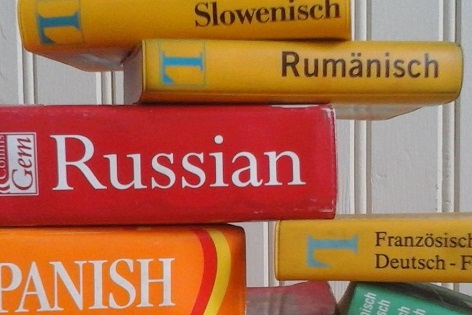Multilingualism is integrative. It is a rich resource for social inclusion and provides the foundations for additional language learning.
People do not learn languages at the same pace, nor do they have equal access to language learning opportunities which help them fit into their neighbourhoods and communities. Denying this discriminates against those least able or least well-off in society.
‘In today’s interconnected world, the ability to speak multiple languages and communicate across linguistic divides is a critical skill. Even partial knowledge of more than one language is beneficial.’ This is how the Salzburg Statement for a Multilingual World, launched globally on International Mother Language Day, begins. It is a direct challenge to the narrow monolingual view of the world that the UK government’s Integrated Communities Strategy Green Paper, launched in March, takes. Tackling social integration, as the Green Paper rightly sets out to do, is of primary importance in contemporary Britain. However, attempting to do this by denying the UK’s vibrant multilingualism is wrong. Tackling the root causes of a lack of integration cannot take place without harnessing the rich multilingual resources Britain has as a result of centuries of inward and outward migration. It denies the lived experience of tens of thousands of multilinguals when it suggests that migrants should be compelled to learn English, when they may already speak the language partially, by a specific date. Achieving this by a given date is not only unrealistic but it is also discriminatory. It is not possible to pin down the point at which someone can achieve a specific level of fluency and it is not practical to suggest testing those individuals who have not been able to access the formal language learning opportunities to help them reach this level. Testing begs the question, what will happen to those who do not sit the test or those who fail? Will they be forced to leave the country? To go where?
The Salzburg Statement, which calls for a just education system built on strong and fair language policies, recognises that social inclusion happens when multilingualism is valued. Its principles recognise that support for social multilingualism by states and international organisations is central to intercultural understanding. Punitive measures for those who cannot reach a particular level of English denies the attempts of those who want to learn English but are unable access the right kind of courses. It also denies that we live in a multilingual world where over 7,000 languages are spoken, several hundred of them across the UK, and that this is a resource which government policy needs to support rather than deny. As the Salzburg Statement puts it:
Targeted language policies can enhance social cohesion, improve educational outcomes and promote economic development. Additive language learning approaches allow children to build strong literacy skills in their mother tongues; help communities retain their languages and identity, knowledge and belief; and create opportunities to learn new languages of personal, recreational, cultural or economic benefit.
The language of politicians and their advisors must change significantly if we are to embrace these principles as a nation, principles which are being taken up across the rest of the world but which in the UK continue to be ignored. Seeing multilingualism as a resource is not an opportunity we can afford to turn from when so much feeling behind the Brexit vote was a desire to go-alone. Harnessing all of our resources will enable us to flourish as we negotiate our new way in the world.
Download The Salzburg Statement
About Dr Tony Capstick
Dr Tony Capstick is a lecturer in TESOL and applied linguistics at the University of Reading, and a member of the CeLM steering committee. His areas of interest include teacher education, multilingualism, migration, and the role of English in mainstream schooling.
Professor Ludovica Serratrice’s blog post in response to the The Integrated Communities Strategy Green Paper is available here


